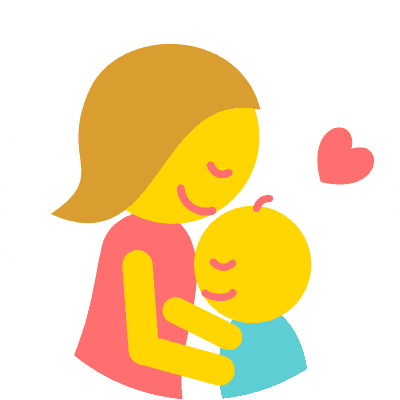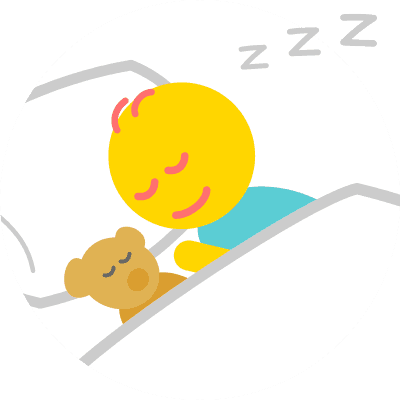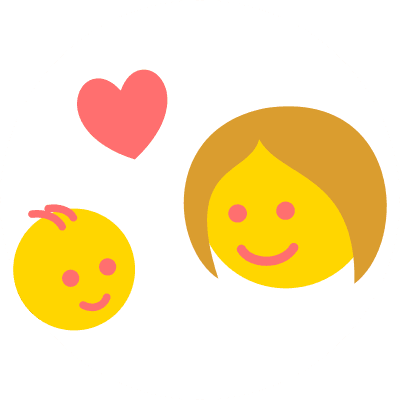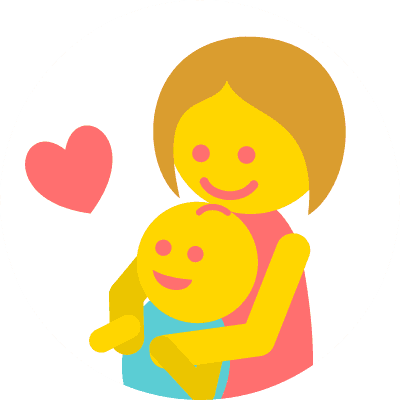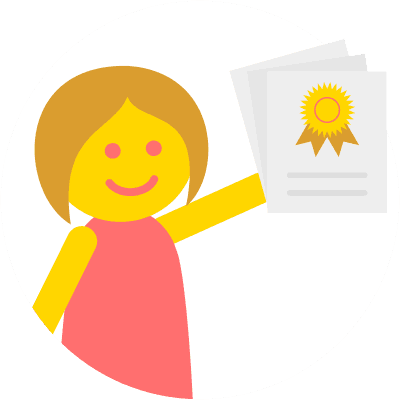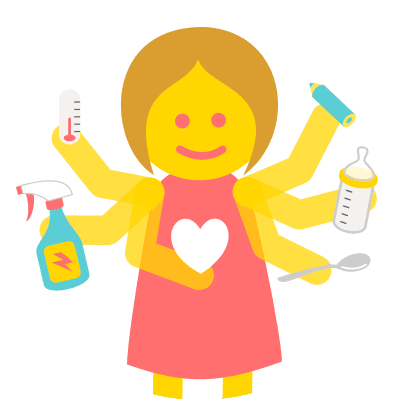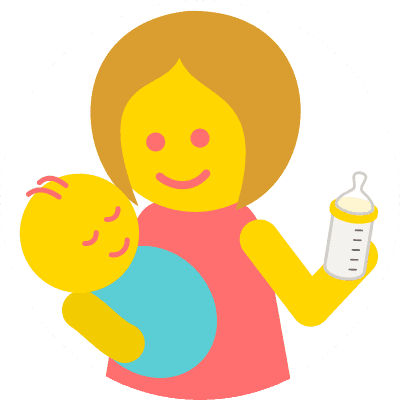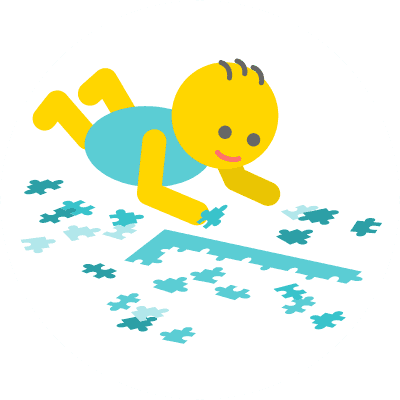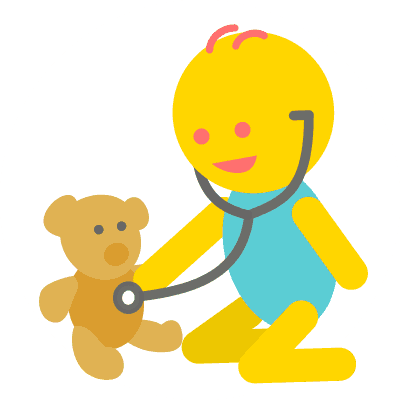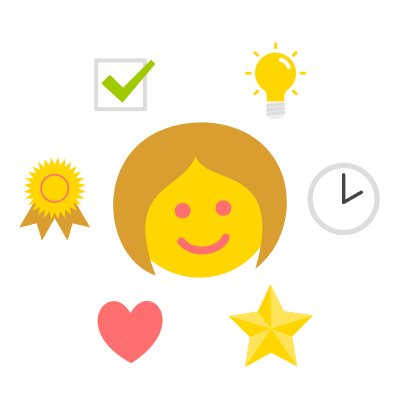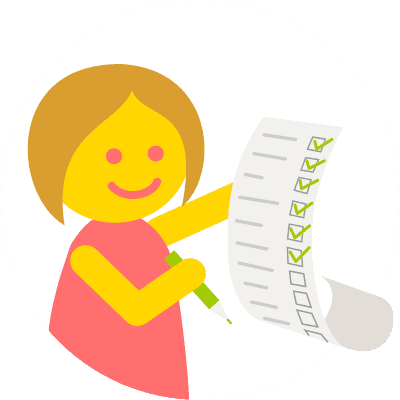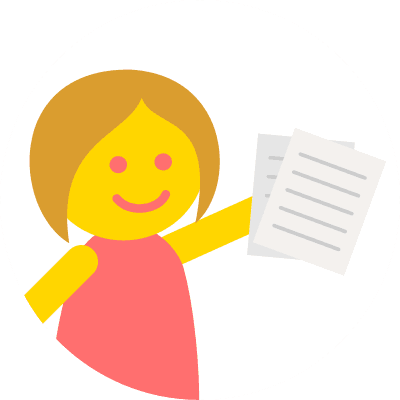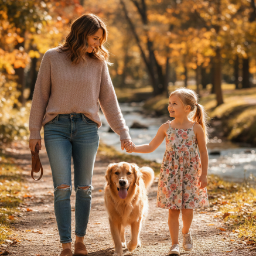Babysitting License (What is it and How do I Get One?)
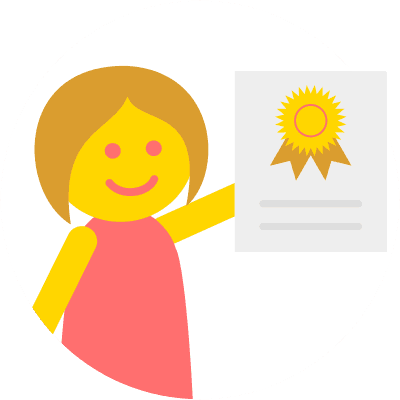

Written & Illustrated by
Matthew James Taylor
Kidsit Founder, General Manager

Reviewed & Edited by
Renee Irving Lee, B.Ed.
Special Education Teacher, Swim Coach, Childrens Author
Key Takeaways
- No Government-Issued License Required: In most places, there's no formal, government-issued license required to babysit.
- Certification Options Available: You can enhance your qualifications by completing courses offered by organizations like the Red Cross or St. John Ambulance.
- Take a babysitting / safety course: These courses typically cover first aid, child development, behavior management, and emergency procedures.
- Age Recommendations: Courses are often designed for individuals aged 11 to 15, providing foundational skills for young babysitters.
- Benefits of Certification: Completing a course can demonstrate your competence and reliability to potential clients.
- Additional Training: After a basic course, consider obtaining a First Aid and CPR/AED certification for more comprehensive emergency preparedness.
- Local Regulations: Always check local laws and regulations, as requirements can vary by region.
If you're just getting started with babysitting, you might be wondering what kind of licensing is required and how to get it.
What is a babysitting license and how do I get one? There is no standard government-issued babysitting license available in most places and it's usually not mandatory to have a license to babysit. You may opt to take a babysitting course through a reputable organization like the Red Cross which issues you a certificate of completion.
By the time you're done reading this article, you will know what a babysitting license is, what different kinds of certification are available, how to get a babysitting license, and whether you can babysit without one.
What Is A Babysitting Licence?
Babysitting licenses are issued by a number of private and not-for-profit companies upon completing their babysitting course. Some of the most prominent organizations offering babysitting courses are the Red Cross and St. John Ambulance.
These babysitting courses are typically designed for younger babysitters, aged 11 to 15, with no prior experience. Completing the course and gaining a babysitting license can be a great way to show prospective babysitting clients that you're knowledgable and trustworthy enough to be left in charge of their children.
(Are you old enough to start babysitting? Check out my article – What Age Can You Start Babysitting? -- to find out!)
Most babysitting courses cover everything from being a leader, dealing with difficult behaviors in children, professional conduct, and first aid skills. Their aim is to get you prepared for any number of situations or emergencies that you could potentially face during your job as a babysitter.
In addition to a completion certificate or babysitting license at the end of the course, you will also typically receive a babysitter's manual which summarizes much of the important information you'll need to know for your job.
Having a babysitting license shows you're competent in basic first aid. That includes things like calling 911 (or the emergency number in your country), handling choking, minor cuts and scrapes, nosebleeds, burns, and other medical issues.
It also shows that you know how to make good decisions and manage children with difficult behaviors. A babysitter who is licensed demonstrates leadership and responsibility.
To get your license, you'll also need to learn the basics about the developmental stages of children, how to feed, dress, and play with children, as well as how to change a diaper.
Plus you'll gain information about running a babysitting business that can help you to become successful whether you want to babysit as a part-time job or make it a career.
Types of Babysitting Licences and Certifications
Some places may offer several different types of babysitting courses.
Generally, a "babysitting basics" course covers the information listed above. You can take this course in person at your local YMCA, Red Cross, or other locations. Increasingly, it's also possible to entirely complete a babysitting course online to get your license.
Personally I recommend taking an in-person course, because some of the training and techniques are better physically practiced instead of simply watched on a computer screen. A babysitting basics course usually takes approximately 4 hours to complete, so it can be done in a single evening or weekend.
See my recommended babysitting courses.
Some organizations may also offer an "advanced child care" course. This course often covers much of the same introductory material as a babysitting course, but may be aimed at older students. It typically covers a few advanced topics such as child behavior and discipline, holding and feeding infants, leadership, safety, and more.
(What does it take to be a leader? Read my article – Babysitting & Leadership Skills to find out!)
After you have completed a babysitting course, the next certification I'd recommend getting is First Aid and CPR/AED training. While a babysitting course may cover some basic first aid, you should really take a dedicated and more in-depth course on the topic to ensure you can properly treat all sorts of different injuries that you could come across.
As well as training we also recommended bringing a portable first aid kit (see the best kit for babysitters here).
How Do I Get My Babysitting Licence?
Most courses will print a certificate for you after you've successfully completed the necessary training. It will include your name, the date you completed the training, and other information.
Some organizations such as the Red Cross also provide digital certificates. You can access these certificates to print, download, or share them at any time through an online account. Each digital certificate has a unique QR code and ID to confirm your license is valid.
I recommend you print a few copies to include in your babysitting binder just in case parents want a copy.
Can I Babysit Without A Licence?
What licenses you need, if any, will vary from location to location.
Generally, if you're under 18 and just babysitting part-time in the homes of other families, you won't need a license to become a babysitter. Although it can help set you apart from other babysitters if you do have some formal certification and training.
If you're over 18 and babysitting, some places such as Australia and the UK may require you to complete a Working With Children Check (WWCC) or become a registered carer before you can babysit.
If you're babysitting out of your own home, the laws are generally more strict than if you travel to a client's home to babysit for them. You may need to register as a daycare if you're babysitting more than a few children out of your own home, or doing it on a regular basis. You may also need a business license. Some places will even send a government employee to inspect your home for safety and hygiene if you're running a home daycare.
These requirements will vary widely depending on what city, county, state, or country you live in. Each area has different rules. So be sure to find out what your local laws are to avoid any fines or penalties for not having the required licenses and certifications.
For a more detailed overview, check out my article – Can You Babysit Without Qualifications?
How To Get A Babysitting Licence
As mentioned earlier, the Red Cross is generally the most likely organization to offer a babysitting license where you live. They have centers across the United States, Canada, UK, Australia, and other countries which offer babysitting courses. The Red Cross is an internationally-recognized and respected organization, so it's a great choice for training courses if you don't know where else to look. Get in touch with your local Red Cross today to find out more about the courses they offer.
Most centers will offer a Babysitting Basics, Babysitting Training, and Advanced Child Care course, plus First Aid and CPR training as well. You may even be able to get a special price by combining a babysitting course and First Aid course together.
The standard babysitting training course is the best option for most new babysitters. It usually takes about 7 hours over 1 day to complete.
To enroll in a babysitting course, you'll need to pay the appropriate fee. You need to pay your fee at the time of registration, not during or after the course.
In most areas, the babysitting basics course costs approximately $32, the babysitting training course costs $90, and the advanced childcare course costs $55. (Or whatever the equivalent amount in your regional currency is.) First Aid or CPR courses typically take around 6 hours and cost approximately $140.
If you're taking an in-person course, you'll go to your local center at the time and date of your course. For the more comprehensive course, students are usually instructed to bring lunch, since you'll be in the classroom for most of the day.
If you register online, then you can log in and start working through your course material at your own pace. However, I recommend picking a time where you can dedicate at least a few hours to sit down and learn without interruptions.
Either way, you earn a babysitting certificate after you complete the course. Normally there is no final test or exam that you need to pass, you simply earn your certificate by completing the course material.
Once you have your license or certificates, they may be good for anywhere from 2 to 5 years, depending on the course you've completed and the organization offering it. After that time, you may need to complete a refresher course to keep your certifications valid.
If you don't have the money to pay for an official babysitting course, there are some free courses that you can take online. These generally don't provide you with a certificate or license at the end, but they can still provide valuable information.
Passing A Background Check
While it's not technically a license, many parents will want you to pass a background check before they will trust you to babysit their children.
The most common type of background check is a criminal background check, which can be requested through your local police station. You usually just need to pay a fee and agree to have a background check run, and they will provide the results to you within a few weeks.
Every state or country is a bit different. Some may only look at your criminal history, while others may look at your driving record, and other items such as if you've ever been convicted of child abuse or neglect.
Other Licences and Certifications Babysitters Should Get
In addition to taking a babysitting course and getting certified in First Aid and CPR, there are some other types of licenses and certifications that you should consider getting. These can help to make you a more attractive candidate for babysitting clients and can set you apart from other sitters.
Have A Valid Driver's Licence
Getting a driver's license and having a clean driving record opens up a lot more babysitting opportunities.
You can get yourself to babysitting jobs that are further away from home without having to rely on transportation.
You can also take on more tasks and duties as a babysitter. For example, picking up kids from school or taking them to piano or dance lessons while you babysit them. With more responsibility usually comes the ability to demand higher pay for your services.
You can run errands, as well as taking children to the zoo, museums, and amusement parks as a way to add some extra excitement into days that you babysit. It can make things more interesting both for the kids you're watching, as well as for yourself! Who wouldn't love to get paid to take the kids to go see a movie that you've been meaning to see anyway?
If you haven't got a driver's license yet, stop by your local Department of Motor Vehicles (the name may vary depending on where you live.) There you can get information on how to go about getting your driver's license, including getting a driver's handbook and learning the information you'll need. Plus you'll learn what exams you need to take, and how to go about booking them.
Even if you already have a driver's license, I'd recommend also signing up for a defensive driving course to improve your driving even further. It will help you to potentially avoid accidents while driving in the future, and in some places you might even get a discount on your car insurance for completing it.
Special Needs Care
If you will be in charge of one or more children with special needs, then it's worthwhile to take a course specifically designed to help you out in your role as a caregiver.
Depending on the needs of the different children that you plan to babysit, there may be specific medical information or needs when it comes to caring for a child that you should be aware of.
Where you'll need to take such courses will depend on where you live and the conditions you're dealing with. Local colleges in your area are usually a good place to start looking though. They may refer you to other related organizations in your area such as Easterseals.
See our article How To Babysit Autistic Children for special needs babysitting tips and activity suggestions.
Water Safety Certification
If you will be babysitting for a family with a swimming pool or that lives near the ocean or a beach, getting certified in water safety is a good idea. Your local YMCA or Red Cross will offer training in water safety education or becoming a certified lifeguard.
These courses will help ensure your own swimming skills are up to a high enough level that you could help to rescue a child in distress. You'll also learn the signs of drowning and how to handle any pool related emergencies such as spinal injuries, swallowing water, or other issues that can occur around large bodies of water.
See our water safety tips for babysitters if you will be babysitting kids in or around water.
Early Childhood Education (ECE)
If taking care of children is in your future and you plan to be a teacher, daycare worker, or some other kind of childcare provider, then taking an early childhood education course can be very helpful.
Not many babysitters will go this far above and beyond, so getting a formal post-secondary education in childcare can really help set you apart from other candidates. Not only does it show you're more knowledgable and experienced, but you'll be able to command a higher rate for your services and be seen more like a professional as well.
An early childhood education course will teach you all about the development of children and lots of other useful information. Taking an ECE course is also a step toward becoming a licensed caregiver at some point in the future.
(Read my article – Babysitting & Child Psychology – if you want to get a head-start on understanding the physical, cognitive, and social growth of children.)
If a full early childhood education program seems like too much, many community colleges offer more basic certifications in childcare education as well.
Take A Nanny Basic Skills Assessment
The International Nanny Association (INA) offers a basic skills assessment.
It's a test that can be taken online. There are 40 questions that must be completed within a specific time limit that cover a variety of topics such as safety, health, nutrition, child development, and professionalism.
The test costs $25 to take and requires a score of 70% or higher to pass.
Even if you don't plan to become a nanny, taking the basic skills assessment test can help give parents peace of mind when they're considering hiring you. It provides some credentials for you if you don't have a degree in a child-related field already.
You can take it even further and complete the INA Nanny Credential Exam if you wish. This is a 2 hour proctored test which is much more in-depth and challenging. It's recommended that you have a minimum of 2,000 hours, or 1 year of full-time childcare experience before attempting it. However if you successfully complete it, you'll be an INA Credentialed Nanny.
Positive Discipline Training
Positive discipline is the reinforcing of good, positive habits in children. This type of childcare focuses more on helping children and nurturing them without the use of scolding or punishment.
Parents appreciate a babysitter who can discipline their child in a more positive way. This leads to a happier babysitting experience for everyone involved.
You can visit positivediscipline.com to learn more about specific training and certification.
Common Babysitting Qualifications And Credentials
The average babysitter is 23 years old, and has 5 years and 6 months experience working with children.
| Childcare credential | Percent |
|---|---|
| 9.12% | |
| 2.28% | |
| 25.76% | |
| 24.91% | |
| 14.98% | |
| 11.95% | |
| 7.19% | |
| 5.10% | |
| 8.88% | |
| 1.48% | |
| 2.75% | |
| 34.32% | |
| 21.62% | |
| 3.78% |
| General credential | Percent |
|---|---|
| 16.35% | |
| 28.74% | |
| 24.40% | |
| 7.93% | |
| 48.21% | |
| 27.40% | |
| 8.37% | |
| 8.98% |
(Babysitting statistics calculated weekly from our live member data — Updated 16 Feb 2026)
Conclusion
Babysitting courses are available both online and offline. They can provide you with a babysitting license and certification. Most of them only take a single day to complete.
Having your babysitting license is a way to show to parents that you know how to care for children of various ages, and you know how to deal with emergencies that may arise. They also provide valuable information for you as a babysitter about how to run your business.
Getting a babysitting license is really just the start though. There are other qualifications like CPR and First Aid training, getting a driver's license, and other education that you should consider looking into as well.
If childcare is something that you want to be your profession or career long-term, then it's worth investing in lifelong learning in the field and starting your education right away.

